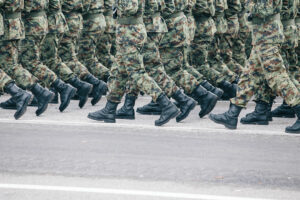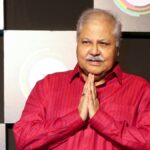
Most Filipinos oppose military coups as a means of settling political disagreements, according to a poll released on Sunday, showing strong support for democratic processes amid rising political tensions.
According to an OCTA Research survey conducted from September 25 to 30, about 70% said they are against the intervention of the Philippine military in political disputes. Only 5% of respondents said they supported the military coup, while 22% remained undecided.
OCTA interviewed 1,200 adults for the survey, which had an error margin of ±3% points.
“The findings make it clear that any efforts by the military to settle or influence political disputes will not have the support of the majority of Filipinos and will likely face widespread public opposition,” OCTA said in a statement on Sunday.
President Ferdinand R. Marcos, Jr. is facing increasing pressure as his administration is dogged by controversies related to substandard, incomplete or non-existent infrastructure in a country regularly hit by floods.
News of a coup plot against him circulated on social media last month, as thousands of Filipinos took to the streets in the biggest protests in years over a billion-peso flood control scandal.
Philippine military chief General Romeo S. Browder, Jr. said in October that he had rejected calls from retired generals – most of whom were critics of Mr. Marcos – who had sought to unify the armed forces to remove him, amid growing discontent over the public works dispute.
According to OCTA, opposition to military intervention in politics was highest in Mindanao at 79%, followed by the National Capital Region at 78%, Visayas at 71%, and Balance of Luzon at 63%.
Skepticism over the role of the military in government was strongest among higher- and middle-income groups, with 73% of classes A, B and C and 71% of class D opposing the involvement of the armed forces. Disagreement among Class E dropped to 64%.
“These survey results reaffirm the strength of democratic norms in the Philippines and highlight the enduring commitment of Filipinos to upholding civil and constitutional rule,” OCTA said. “The widespread resistance reflects both the enduring influence of democratic values and the collective memory of past authoritarian regimes,” he said.
The Philippines has a long history of coup plots, with more than a dozen military coups since democracy was restored after a popular street rebellion overthrew the late President Ferdinand E. Marcos, Sr. in 1986.
Every succeeding president has faced the threat of a coup by disgruntled soldiers, former President Rodrigo R. Duterte's government has had to deal with alleged plots to remove him from office during his 2016–2022 presidency.
The last serious attempt to oust a civilian government took place in 2006 during the presidency of Gloria Macapagal Arroyo, but it was foiled by state security forces and resulted in the arrest of several military and police officers. A one-week national emergency was declared to suppress the rebellion. , Kenneth Christian L. basilio










